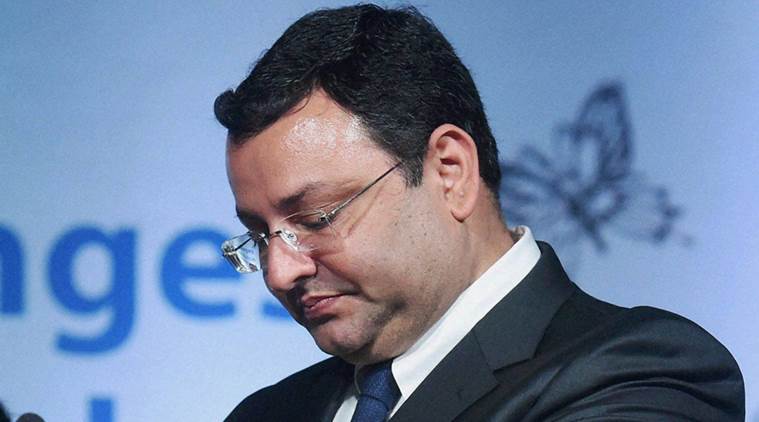After Monday’s abrupt removal of Cyrus Mistry as the chairman of Tata Sons, rumours have been afloat about the reason behind the removal. The Economic Times now claims to have unearthed the reason – On August 26, the Tata Sons board was expanded by inducting Piramal Enterprises Chairman Ajay Piramal and TVS Motor Chairman Venu Srinivasan. The appointments were seen as a move to tighten the grip of Tata Trusts over the Tata Sons board chaired by Mistry.
The move was seen by many close to Tata Group as payback. In June, Mistry had cleared Tata Power’s $1.4 billion acquisition of Welspun’s solar farms without seeking approval from either Tata or other key shareholders.
The Tata Trusts, including Sir Dorabji Tata Trust and Sir Ratan Tata Trust, together control about 66% of Tata Sons.
“Tata Power is a cash guzzler but generates very little profit. Yet, when it’s embarking on its biggest buyout, a principal shareholder is kept in the dark. That’s unprecedented in Bombay House (Tata Group headquarters),” said an old-time group insider to ET.
Ratan Tata hailed Mistry when he selected the 43-year-old to lead Tata Sons. The industry veteran termed it as the victory of youth and advised his successor to ‘be his own man’. Now the same triumph of youth has turned into the villain with many perceiving him to be insolent, precocious and out to destroy ‘the core values that the group stood for, for close to 148 years’.
There was a fundamental disconnect between Mistry and Tata, particularly with regard to ethos, values, vision and the direction that the group was headed in. Detailed letters were sent to Mistry asking him to spell out his vision, five-year plan, etc. but the responses were vague and non-specific. Things got aggravated as the chairman of Tata Sons and Tata Trusts were not the same individual. The former was not a Tata family member but represented the single largest shareholder while the latter was custodian of a century old legacy. “Confrontation was inevitable,” felt a Mumbai based CEO of a global investment bank who has been working closely with the Tata Group for over two decades.
Mistry’s decisions to dispose some of Indian Hotels Co’s overseas properties and the move to shut down UK steel operations ruffled many feathers within Tata Trusts. These aforementioned properties were considered legacies of Ratan Tata, with Mistry’s new outlook considered to be overly aggressive and unnecessary.
“Tata Steel could have been handled better and blunt decisions could have been avoided,” a person close to the development said. “Tata was unhappy with the decision to shut down or sell the group’s steel business in Europe. He wanted the group to turn around the loss-making business rather than sell it.”
Mistry’s decision to all-out legal battle with NTT Docomo and challenge the $1.2-billion international arbitration court’s order that went against it was seen as breach of faith by many Tata old-timers. “Tata had made a promise to Docomo that he’ll protect their investment in India. Come hell or high water, it would have been fulfilled. It’s about the spirit over subject here,” added another old Tata executive.
Tata’s sub-scale telecom operations are a classic case of Mistry’s centralised micro-management, a direct fallout of which was the collapse of negotiations with Vodafone, even after the senior leadership from both sides got personally involved.
Mails to Tata Sons, Nitin Nohria and Lord Kumar Bhattacharyya did not generate a response.
Cracks had started to appear between Tata and Mistry when the latter sacked managing director of Indian Hotels, Raymond Bickson, in 2014. Bickson, perceived to be close to Tata, was replaced with Hyatt veteran Rakesh Sarna. Matters worsened when Mistry continued with Sarna despite alleged complaints against him.
“Mistry’s eye for talent is also being questioned. The people he has hired are not inspirational leaders, just individuals,” said a former Tata Motors executive.
The creation of the Group Executive Council (GEC) as Mistry’s main brain trust had upset many in Tata Sons who perceived it as a parallel power centre. Only a handful of its members had actual operational experience of running a business. Most of Mistry’s key advisers, including Madhu Kannan, NS Rajan, Nirmalya Kumar, were also shown the door along with him.
Concerns were also voiced about conflict of interest regarding award of contracts to construction companies of the Shapoorji Pallonji Group even after Mistry took over.
At a stormy Tata Sons board meeting on Monday, other than Ishaat Hussain and Farida Khambata who abstained, the rest voted for the chairman’s ouster. WhatsApp messages to senior Tata employees talked of a big-bang announcement. Meanwhile, most of the Group Executive Council members abruptly left an in-house event, adding to speculation, said company officials.
“But in the end it was a coup that was planned to perfection and executed to the tee,” quipped an old Tata hand to ET.


















